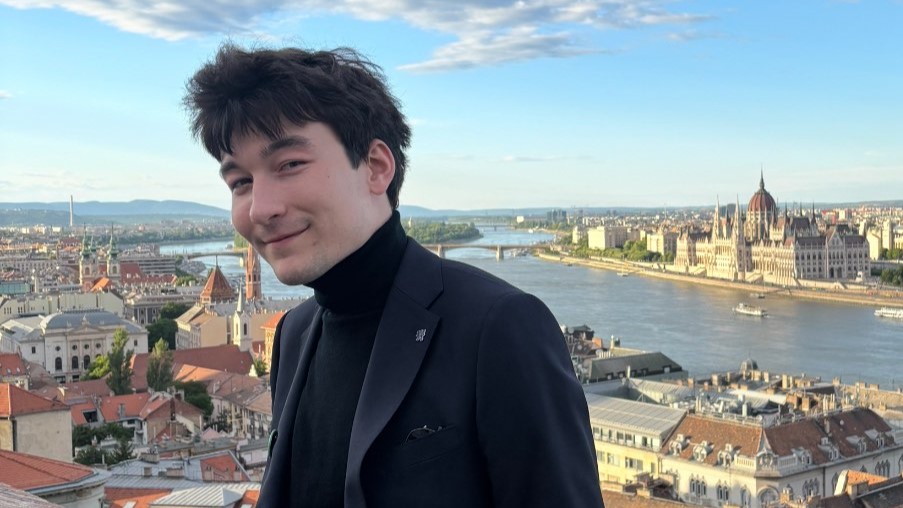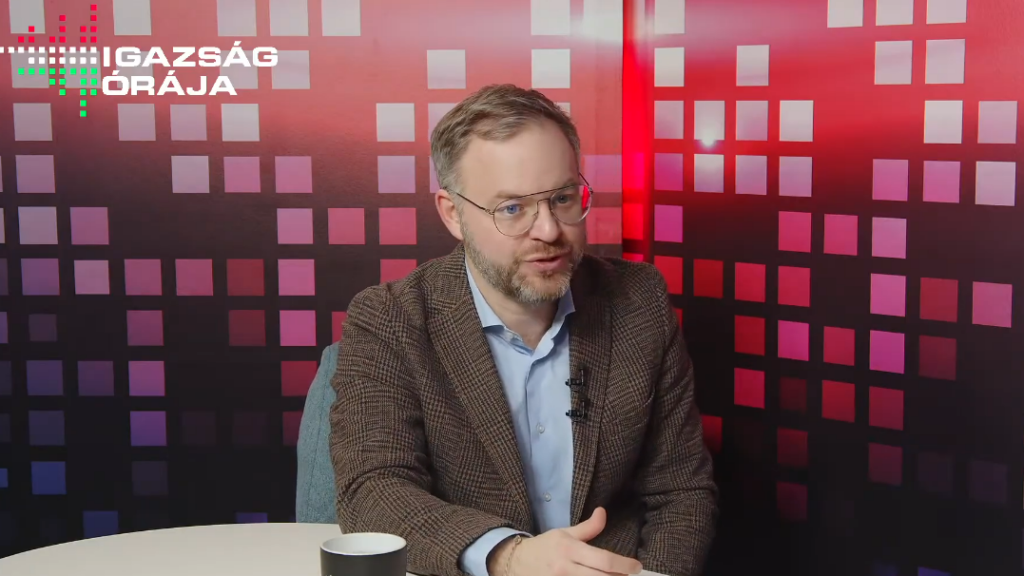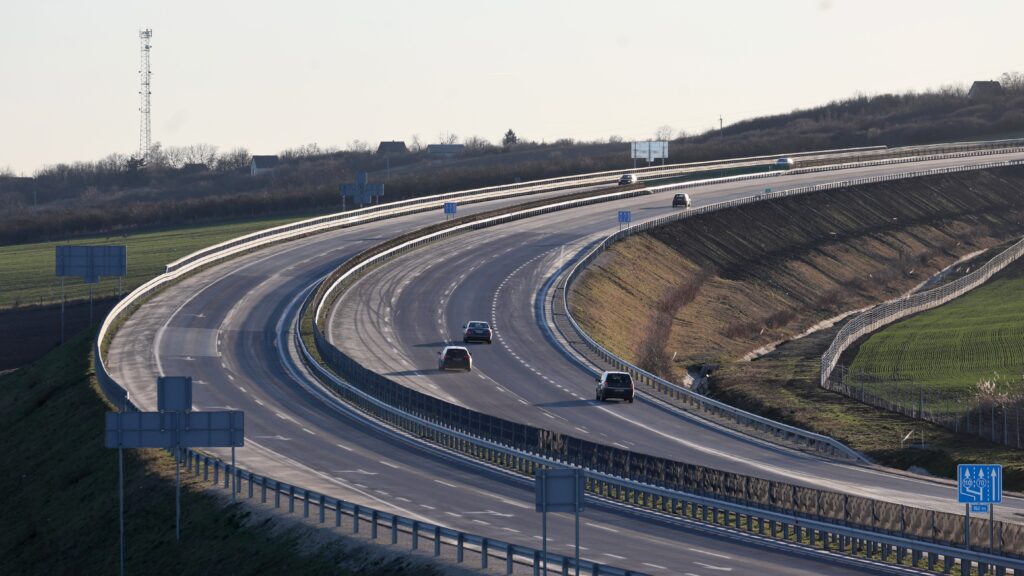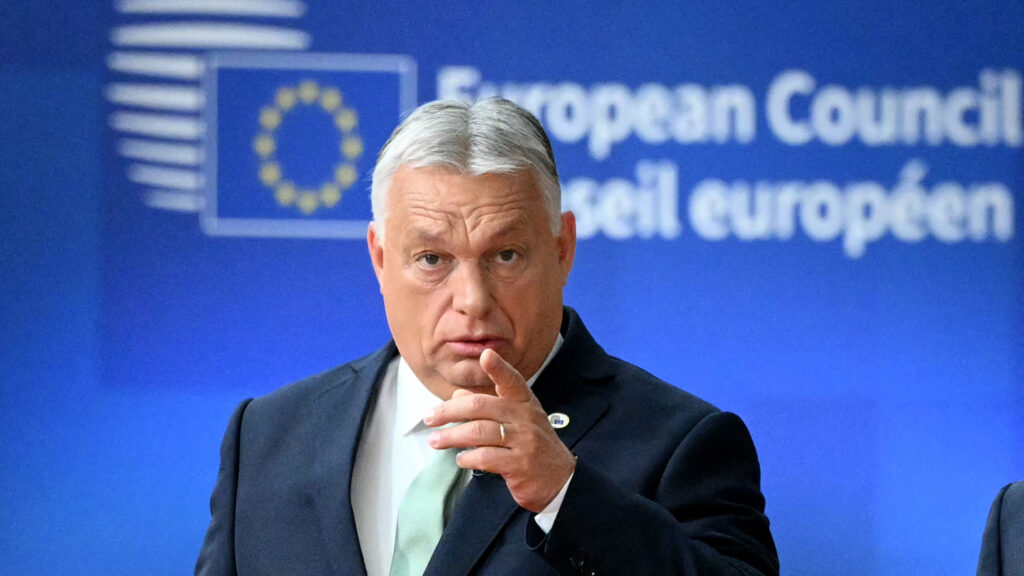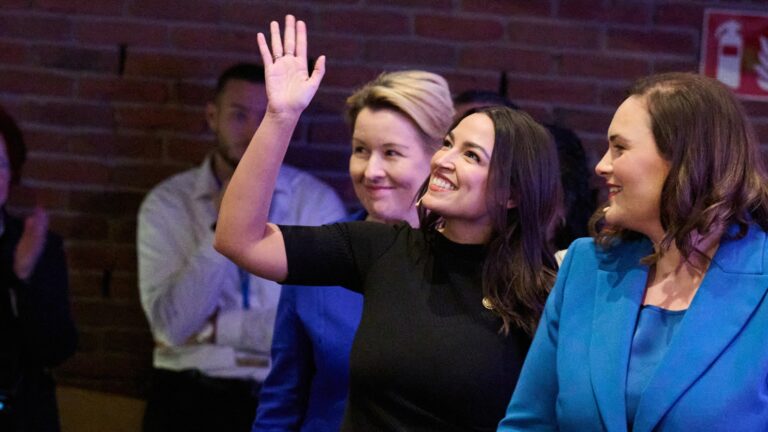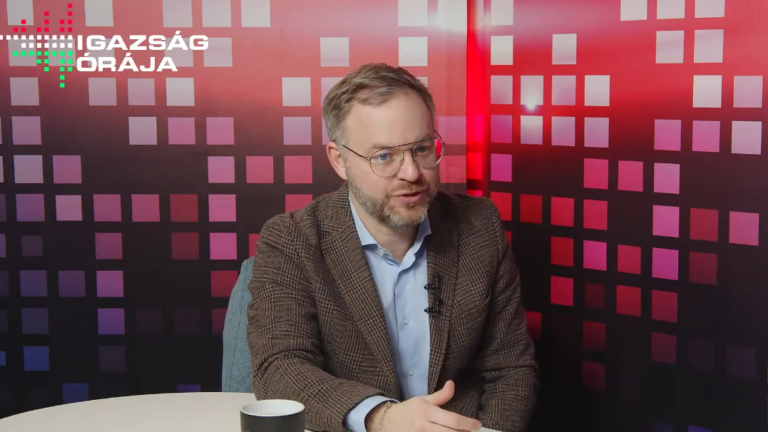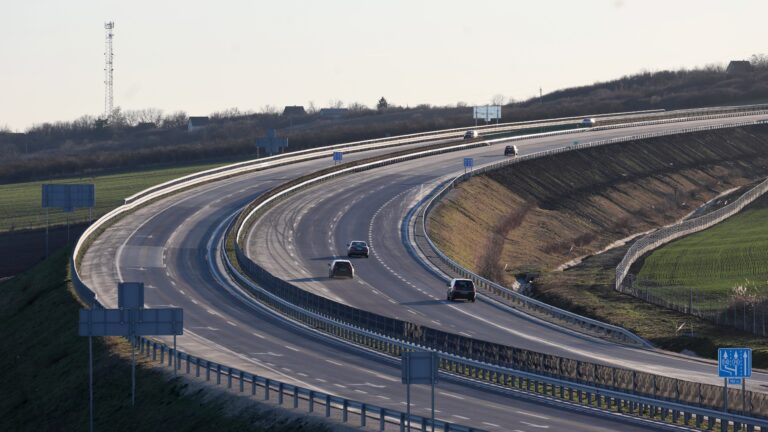CPAC Hungary 2025 and similar events illustrate how being on each other’s media radar can be very useful for related political movements to succeed in this interconnected world. Politically involved people in the West will encounter different problems in their own national landscapes, but they may find they have a lot to learn from the failures, successes and general proceedings in other countries.
Among the many prominent speakers at CPAC Hungary 2025 was Andrej Babiš, Prime Minister of the Czech Republic from December 2017 to December 2021 and the founding leader of ANO 2011, the top-polling party in the country, which was in power first as part of a coalition from 2014–2017, then as coalition leader. While moving through the exhibition stands, I also met Hugo Chadima, first vice-president of Mladé ANO [Young ANO], the youth organization of ANO 2011.
The day after CPAC Hungary ended, Karol Nawrocki was elected President of the Republic of Poland. This made the notion that the Czech Republic was the last piece of the puzzle towards a politically synchronized V4 burgeon in my mind, and the time appeared right, ahead of the Czech elections in October, to interview Hugo Chadima about his experience as an up-and-coming Czech political scientist, who holds two master’s degrees: one in political science and one in political theory. He is also completing postgraduate studies in public administration.
***
The starting topic of this interview is something you mentioned to me at CPAC Hungary: a scandal involving the former Minister of Justice of Czechia Pavel Blažek. Could you elaborate on what happened?
I should first mention that we have had several very serious corruption cases that would, under normal circumstances, topple any government. One or two even included very suspicious deaths. The Dozimetr scandal,[1] for instance, was connected to the Mayors’ Party, and five people are known to have died in connection with it.[2]
Then there was another one affiliated directly with the Prime Minister [Fiala], who had what we call a kampelička, a special fund where he had money, and the person responsible for this fund [Robert Zelenka] also died of ‘suicide’ during the last previous European elections.
When this latest scandal broke out, I initially assumed it would amount to little. But to my surprise, the shadow eminence of the government, Pavel Blažek, was forced to resign. To me, this guy was Teflon.[3] He is involved in the embezzlement of city apartments in Brno, and then also used his position as justice minister to meddle with the prosecution in his cases.
Now, the latest scandal you were referring to involved the government making a deal with someone who held nefariously earned bitcoins that came from the likes of drugs, prostitution and human trafficking.
Would that be Tomáš Jiřikovský?
Yes, Jiřikovský. We can assume he was a white horse [in Czech parlance, a frontman or proxy] for someone. The police confiscated his laptop with the access codes to his bitcoin. He struck a deal that he would transfer a third of all the cryptocurrency to the government in exchange for gaining access to his laptop.
The government thus received a billion crowns’ worth of illicit bitcoin and sold it to Czech investors, which is a major problem, because there is technology that flags criminal bitcoin, meaning the people who bought it are likely eligible for huge reparations.
Another piece of the scandal is the fact that the finance ministry knew about this transfer and gave a very strongly-worded disavowal of the whole transaction—yet it was still carried out. So this is a very convoluted story in which everyone plays dumb, even though it’s very unlikely that they are actually this naive.
Especially in a supposedly technocratic Fiala government?
It’s not technocratic, it’s very partisan.
This corruption you mentioned—has it always been the same, worse, or gotten better in the past 30 years? And could you elaborate on the governing coalition?
In the 1990s and 2010s, Czechia had a two-party system which pitted ODS [Civic Democratic Party], the current governing party, against the Social Democrats. The latter have lost all relevance, but ODS stayed afloat despite being almost wiped out in 2013. That was after major corruption scandals.
A culture of corruption in ODS has been cultivated by the fact that every time they got caught with their hand in the cookie jar, they always got away with it. When the voters give them a second chance, people like Blažek, who was already one of the most powerful people in ODS eight years ago, during its worst scandalous years, get emboldened.
‘A culture of corruption in ODS has been cultivated by the fact that every time they got caught…they always got away with it’
The fact that he not only got caught, but was doing something that definitely was going to be found out, shows you that their hubris has overruled their survival instinct. So, given this is our current grade of politicians, what we as ANO are most worried about now is how to renew trust in government if we do get back in power.
To answer your second question, the four parties currently in government are ODS, the Christian Democrats, Top 09 and the Mayors’ Party [STAN]. The first three are part of a coalition called Spolu, our main rival in the Czech political sphere. They are a centre-right coalition that has leaned into very liberal positions.
I would say that Fiala, the leader of ODS, of the coalition and the prime minister, is not someone who cares much about Czechia’s national interests. He cares about being liked by supranational institutions, by Ursula von der Leyen. When they were negotiating portfolios for EU commissioners, we received a very poor portfolio because she knew Fiala wouldn’t complain.
He is unfit to rule, and I think most people can see it now. The four parties will have to go pretty soon.
In terms of internal divisions within those parties, do you see them falling apart on their own? Or will it take facing them as a wall by October?
That is a very good and important question. There are signs that the wall is cracking. The Mayors’ Party, which is very liberal and leaning towards progressive, has a very different approach to most things, whereas the more conservative wing of the ODS and Christian Democrats has antithetical values. But this has been a constant, and whenever they were about to break up because of their supposed difference in values, they were reminded that they don’t have any real values, except to be against Babiš.
For the Mayors’ Party, keeping the government alive is a horrible move because they are losing voters rapidly, playing a middle ground where they try to keep Fiala in power but pretend that they don’t. Meanwhile, the Christian Democrats said that if the scandal gets worse, they will consider withdrawing from the Spolu coalition before the election.
But despite this statement, I think they are not going to do it, because they know their survival depends on it.
I see, so you must not sell the skin of the bear before killing it.
Precisely.
Let’s talk more about the hunter, then. Could you describe to us the history of ANO 2011, what it is about, and who Babiš is?
ANO started off as an anti-corruption movement that transcended the typical divisions of left and right. I think the two-party system we had, with the centre-right and centre-left parties, has proven corrupt and ineffective in general. Back in the early 2010s, because of the fake feuds between centre-right and centre-left, nothing was done.
‘ANO started off as an anti-corruption movement that transcended the typical divisions of left and right’
Babiš is a businessman who likes to see things get done, so he watched all this with some frustration. He is one of the richest men in the country, so to him, already, there was no reason to join politics for personal gain. He introduced a culture of work into politics, with very high expectations. Every time there was evidence that someone infiltrated our movement or had corrupt dealings, they got immediately booted out.
Under the ANO government, we had balanced budgets, some of the highest economic growth in Europe, the highest employment rate, the highest growth in HDI…it was a great time to be alive and to be Czech. I developed a strong patriotic sense at that time.
Then COVID came and made everything very difficult. We had great projects lined up back then, a vision for ‘11 million people’ it was called, we had all this money saved up for investment, and all of it got burnt during the pandemic.
Afterwards, Spolu completely derailed our nation’s finances. They have brought back a culture of laziness, coming in with hundreds of party apparatchiks who found little jobs and became parasites on the state’s finances. They have created three new ministries, countless new departments that do nothing, and they have been a huge leech on the state.
In the past four years, ANO has been getting ready to get back into the government. We created a shadow cabinet, always opposed the government’s measures, and consistently criticized them, then said what we’d do instead.
How is party discipline like with Babiš? Also, you are painting a portrait of Babiš reminiscent of Trump, someone who has a lot of money and can afford to lose money going against the grain in politics. How accurate is the comparison?
You have to lead by example, and Babiš is the most diligent person in the party.
There are scandals, of course. For ten years, they have been trying to get him for the ‘Stork’s Nest’ affair.[4] They say that almost 20 years ago, he embezzled a few million euros, like he needed the money, right? They can’t get the evidence, but still try to indict him. But they know it makes him look bad when he’s prosecuted, so they keep suing him and hope it sticks eventually.
As far as the comparison with Trump is concerned, they are similar in that they both are no-nonsense in their approach. They are very direct and just say it like it is.
I would say Babiš is more meticulous than Trump’s flamboyant style. But both are strong personalities and leaders, and they target the same voters: patriotic people who have a sense that the country is being taken over by corrupt elites.
Now that Nawrocki was elected in Poland, you have patriots in control in Hungary, in Slovakia, in Poland…would you share this notion that all four countries will be in sync if Babiš gets in power?
I think the relations with V4 will be very good if ANO gets in power. The current government has disregarded V4 completely, approaching it arrogantly as ‘Eastern Europe’. But it’s not about east or west, as we are all at the heart of Europe. Back in the previous ANO government, we would stand with Hungary against the migrant quotas, and Babiš and Orbán have always been friends.
When I was at the Hungarian border, they told us that during the ANO government, Czech border police were sent to Hungary to help guard the Schengen system. From my personal experience, meeting people from Fidesz and Hungary was a wonderful encounter. I really felt at home in Budapest. Our Central European identity goes beyond just the national identity. It is very different from this strongly globalized notion of a European identity as envisioned by the Brussels bureaucrats.
To that point, the relationship with Poland and Slovakia will also be very good. We always try to reach out to our neighbours. And we also want good relations with the Germans and Americans, because beyond the politics, it is about our civilizational bonds.
The youth are a driving force for innovation in all matters. Could you tell us more about your youth organization, how it is structured, the challenges you have overcome, and the ones that lie ahead?
Young ANO is an exceptional youth organization in that it attracts people who want to move beyond ideology and are committed to making their country better. ANO is also very horizontal, and Babiš wants to meet and deal with people personally.
‘Young ANO…attracts people who want to move beyond ideology and are committed to making their country better’
ANO polls first with young people, at about 20–25 per cent of their votes. The biggest challenge is that we want to transform our solid youth vote into active engagement in politics. We have a culture in our country that is very anti-politics. The talented people don’t have a real incentive to go into politics. Why would they? It is only punishment, no rewards and only negatives for them.
After the election, we want to start recruiting, make a massive outreach in our voter base, and get more of them to participate in politics in general. The main problem with our generation is that we don’t have many fighters. I want our generation to get tougher and more competitive, and when that happens, ANO will be the best vehicle for all these competitive young people to get into politics and make a career and a dent in the world.
Strong men create good times indeed.
[1] A 2022 corruption case in which Prague transport officials and STAN party figures were accused of rigging public contracts in exchange for bribes.
[2] This is corroborated by the independent investigative website Neovlivní.cz in a November 2023 article.
[3] A reference to ‘Teflon Mark’ Rutte, the former PM of the Netherlands, famous for staying in power even after many scandals.
[4] Babiš was acquitted in January 2023; this acquittal was overturned in June 2025 by the High Court in Prague, after which the ruling coalition called for Babiš ‘not to run in October’s general elections and quit politics’.
Related articles:

